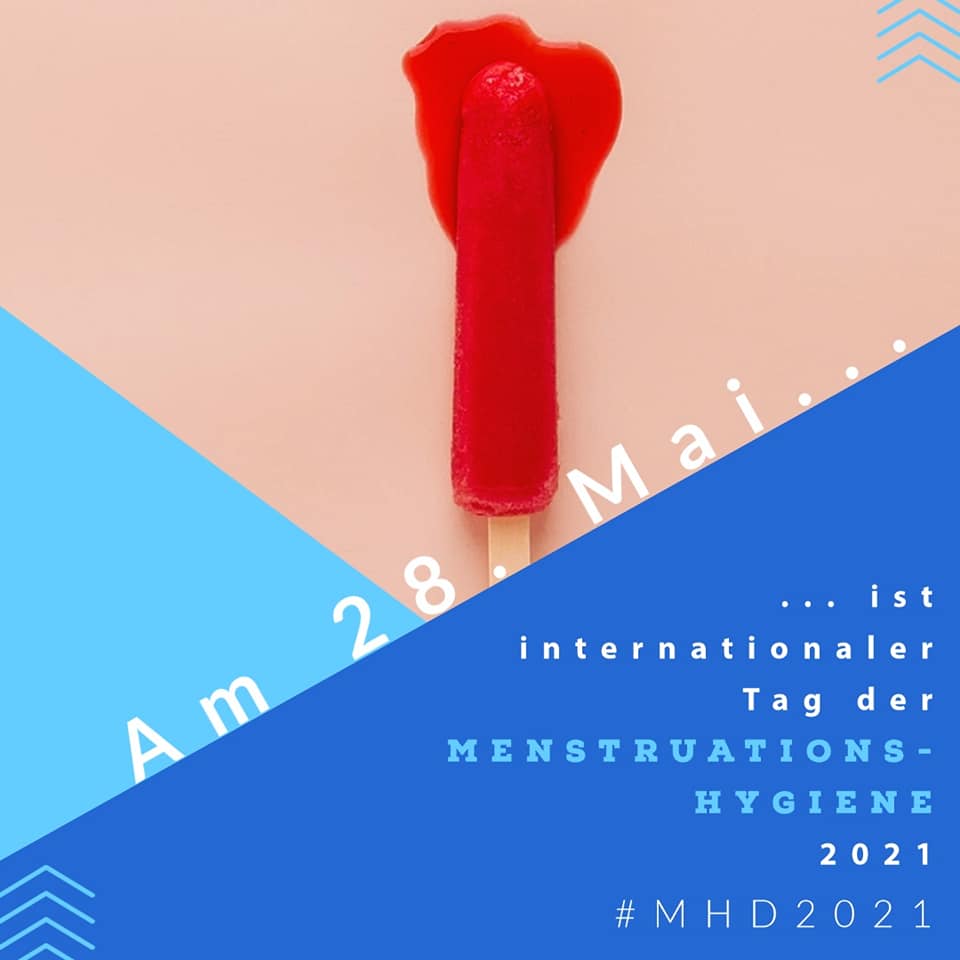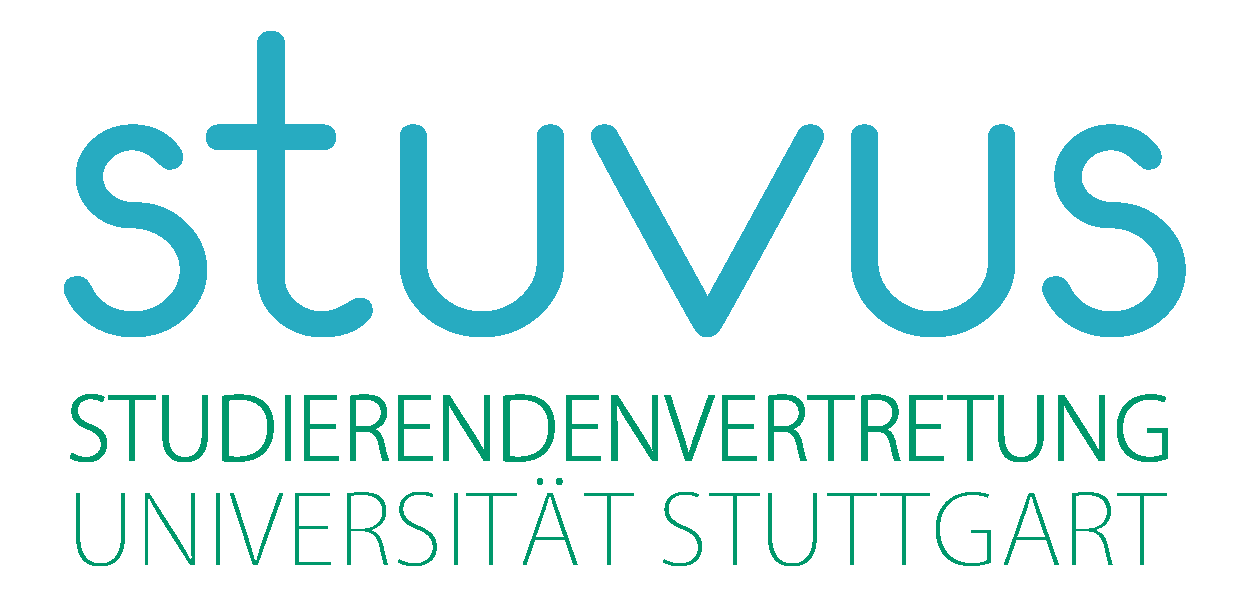What is it about?
Menstruation is an issue that affects about half of the population worldwide. At the University of Stuttgart, it affects an estimated 35% of all students. For these students, the use of hygiene products during menstruation is as ubiquitous as the use of toilet paper or soaps and, currently, disinfectants. Nevertheless, menstruating persons have to take care of the supply of these products themselves.
Not all students can afford these products. It is estimated that 7% of menstruating students in Germany suffer from period poverty[1]. This can often lead to illness in the long term, which in turn leads to absences from classes. Another problem that menstruating students suffer from is that menstruation often starts unexpectedly. If this is the case and one does not have sanitary products available at that time, one often has to return home and thus misses out on important teaching and opportunities to participate in education.
[1] As there is no data of period poverty in Germany, for this estimate the proportion of people affected in the UK (10% of menstruating [source]) was calculated with the ratio of women living in poverty between Germany (16% in 2018 [source]) and the UK (24.3% in 2018 [source]).

Our idea
Our idea is to provide menstrual products free of charge for affected students. For this purpose, the most common hygiene products in Germany: tampons and pads, are offered in suitable containers in all toilets at the University of Stuttgart. These are replenished by the respective cleaning staff. In order to make the storage on site more attractive, these are to be placed in storage containers for the long term, which can be mounted on the toilets next to the washbasins. There are already disposal facilities in the toilets for female students, and in the toilets for male students, the general wastepaper baskets can initially be used for disposal.
We explicitly want to offer period products in the male toilets as well, because male students can menstruate too! Unfortunately, we don’t know how many this affects. With our test phase, however, we hope to find out the need here as well.
The pilot phase
In an initial pilot phase, free menstrual products (5072 tampons and 5078 sanitary towels) were offered in the larger toilets on both the Vaihingen and Stadtmitte campuses for about two months from 1 November to 31 December. We stocked them in order to assess the effort involved in stocking them and the level of consumption. As a transitional measure, the menstrual products were initially laid out in simple cardboard boxes during this test phase. This simplified the implementation of the pilot phase. Funding for the pilot phase was provided by stuvus. The pilot phase ran until the end of the summer semester 2022.
Outlook
After a successful pilot phase, we would like to extend the project to all toilets. The boxes will then be replaced by more permanent installations, such as the Period.Box of the University of Freiburg. These are easy to fill and still provide safe and professional storage. The project is now being continued by the university, which is also responsible for the financing and design of the period products.
Contact
This project was initiated by the Department for Equality, Diversity and Social Affairs.
You are also welcome to send us an email: menstruationsprodukte@stuvus.uni-stuttgart.de
Are you interested in more information about this topic?
Then you can find more projects here:
Basically, there are currently efforts to implement free hygiene products at various universities throughout Germany. This open letter was also written in this context.
Background information about our project
We are from the Department of Equality, Diversity and Social Affairs of the Student Council of the University of Stuttgart (stuvus). This means that the project “free menstrual products” was initiated by the student council. We got in touch with the university’s Equal Opportunities Officer. The result was that the project is supported in principle, but that we should first start a pilot phase with funds from the student council. The stuvus (Asta) board had to approve the funding. Next, the building managers had to be informed so that the cleaning staff wouldn’t put away our self-made boxes.
We expected to receive 400 pads and 400 tampons per month. It turned out that our assumption was about 5.5 times too high. In fact, at the moment the project costs about 40€ per month and we were able to distribute products for about 1 year, even though the test phase was only designed for 2 months. (However, this may also be somewhat distorted by the fact that there was not so much presence in the winter semester – at the moment, slightly more products are being used).
So, at the moment, the student council is bearing the costs of the project at the beginning. We are in the process of handing the project over to the university itself, but unfortunately this is taking a long time. However, it was only recently confirmed that the project could be financed from the university’s budget. For 2023, 1000€ were estimated – but it will still take until the university actually implements the project. The details are currently being discussed.
The menstrual products are currently distributed by a small team of 8 students. We got the people together through an appeal on the stuvus Instagram page. Together, we stock 13 toilets on campus in Vaihingen and Stadtmitte. There, we laid out self-made cardboard boxes in which we filled the products. So you see, we have only selected the larger toilets in the most important buildings for the test phase. In the long term, the products will be filled by the cleaning staff and will also be available at several toilets.
We don’t really work together with anyone, we are just the unit group that takes care of it. It’s only important to keep reminding the university’s equal opportunities officer that the project is being taken over, i.e. every now and then we have meetings/phone calls/meetings with her.
Apart from that, we had a valuable exchange within KostA, of which we are part as a stuvus unit (https://bukof.de/kommissionen-liste/studentische-angelegenheiten/), and the people who work there are always happy to help 
There was no real headwind. Here and there an email or a comment about the supposed environmental harmfulness of the products, but nothing bad. We actually got a lot of positive feedback from the students about a survey we posted with the period boxes 
We don’t have any contracts. So far, we’ve been using DM’s own brand products because they were super cheap and we didn’t want to commit to anything for the pilot phase.
It’s been some time since we had the idea for the project, good communication with the uni people is definitely the key and a lot of appreciation for the people who help distribute the products I would say.
